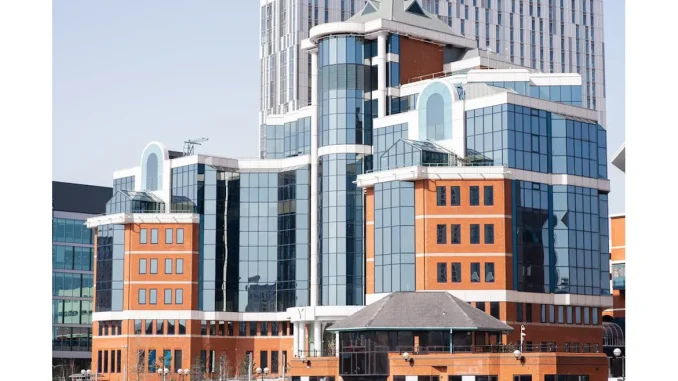
In the dynamic urban landscape of Salford, undertaking construction projects is both an exhilarating and demanding endeavour, requiring scrupulous attention to building regulations. These regulations serve as the bedrock of construction standards, ensuring the safety, health, and welfare of all involved. For projects ranging from roof replacements and cavity insulation installations to comprehensive domestic electrical overhauls, understanding and adhering to these approval requirements is paramount to remaining legally compliant and avoiding potential repercussions.
Commencing any construction project in Salford necessitates recognising that most undertakings will generally require building regulation approval. This step is indispensable, irrespective of whether the project involves new constructions, extensions, or significant modifications to existing structures. Even tasks perceived as minor, such as replacing roof coverings or installing cavity insulation, require approval to ensure adherence to safety standards. This oversight guarantees that all work performed aligns with the established norms, thereby safeguarding the integrity and safety of the built environment.
Electrical systems within residential properties constitute another critical domain governed by stringent regulations in Salford. The installation of new electrical systems or the replacement of existing ones must comply with safety standards, necessitating approval. This is especially pertinent for properties classified as Houses in Multiple Occupation (HMOs). While obtaining building control approval is mandatory for HMOs, it alone does not suffice for compliance with Salford’s specific HMO standards. Property owners must go beyond this and ensure their HMOs conform to all the rigorous criteria set forth by Salford City Council.
The onus of guaranteeing that HMOs meet these stringent standards falls squarely on property owners. It is imperative to proactively address requirements related to fire safety, sanitation, and overall living conditions to provide a secure and habitable environment for tenants. Neglecting these standards not only jeopardises the wellbeing of occupants but can also result in severe legal consequences. Understanding the nuances of exemptions to building regulations is equally vital. Specific structures, such as minor detached buildings, those infrequently occupied, greenhouses, agricultural buildings, and temporary constructions lasting no more than 28 days, are exempt from particular building regulations. Porches and conservatories under 30 square metres may also be exempt under certain conditions. However, these exemptions come with their own set of criteria that must be comprehensively understood and adhered to.
The scope of work requiring approval is extensive and varied, encompassing the erection of new buildings, extensions, material alterations, or changes in the use of a building. Non-compliance with building regulations can lead to criminal offences, with potential legal action under the Building Act 1984 for any breaches. Consequently, collaboration with building control officials is not merely advisable but essential to ensure compliance with minimum building standards and to maintain the requisite quality for construction projects.
Property owners seeking guidance on building regulations in Salford should actively engage with Salford City Council. Given the intricate and frequently evolving nature of these regulations, contacting the council online is advisable for more efficient and prompt inquiries. As of the latest update on 1 May 2024, building control approval does not equate to HMO compliance, underscoring the necessity for property owners to ensure adherence to HMO standards independently.
The installation, alteration, or extension of controlled services or fittings also necessitates approval. This underscores the importance of property owners seeking guidance and approval from the appropriate authorities before commencing any building works. Examples of such projects include home extensions, loft conversions, internal structural alterations, installation of heat-producing appliances, new chimneys, baths, showers, WCs involving drainage alterations, underpinning foundations, and modifying openings for new windows.
Consider a property owner planning a loft conversion to illustrate the critical nature of understanding and adhering to these regulations. This seemingly straightforward project encompasses multiple regulatory layers. Initially, approval is required to ensure the structural integrity of the conversion. If the project includes electrical work, additional approval is necessary to ensure compliance with electrical safety standards. For HMOs, further checks are essential to confirm the conversion meets fire safety and sanitation standards. Each phase of this process demands meticulous planning and collaboration with building control officials.
In summation, navigating building regulations in Salford is a complex undertaking that necessitates a comprehensive understanding of the approval process, exemptions, and compliance requirements. By proactively engaging with building control authorities, property owners can ensure their construction projects meet the necessary standards, contributing to a safe and compliant built environment in Salford. When in doubt, consulting Salford City Council for expert guidance and support is a prudent measure in navigating the intricate landscape of building regulations. Compliance is not merely a legal obligation but a critical component of a successful and secure construction project in Salford. Adhering to these regulations allows property owners to protect their investments while enhancing the overall safety and wellbeing of the community.


Be the first to comment